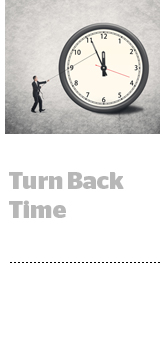
Facebook’s announcement Wednesday that it would ban third-party data partners from directly targeting on its platform hit ad buyers hard.
Previously, buyers could directly apply third-party data segments to their targeting on Facebook through suppliers like Acxiom, Oracle and Experian to enrich Facebook’s data with offline segments.
Now, marketers using segments from third-party data brokers will have to obtain those segments directly from providers and upload them through Custom Audiences – which is both more tedious and expensive. Marketers without quality first-party data could see performance on Facebook decline as a result.
But while some agency execs say this friction is detrimental to certain marketers, others argue it’s a necessary step considering Facebook’s recent troubles and the upcoming GDPR in Europe. To comply, Facebook must turn back time on targeting.
“We’re all characterizing these changes as Facebook goes backward a few years, almost reverting to 2013 capabilities,” said James Douglas, SVP and head of media at IPG’s Reprise.
Here’s what agencies said in response to the question: How will Facebook’s new policy around third-party data providers affect ad buyers?
James Douglas, SVP head of media, Reprise
This is indeed quite a significant change. Most of our advertisers will certainly be impacted.
Removing third-party audiences, either those enabled by default within Facebook or with approved partner build-outs, is a very interesting step in light of Facebook privacy concerns.
This move helps with looming GDPR penalties in Europe, as it clears up opt-in limitations needed there. However, for the US and other markets that don’t have these regulatory challenges, this is a big proactive move by Facebook, perhaps to pre-empt regulations in the US. It certainly helps rein in responsibility for approvals and usage of audience data for advertising targeting.
I think we’ll see impacts across most verticals. Maybe the only ones less impacted are CPGs, or those with very broad targeting needs.
Tyler Pietz, solutions lead, MightyHive
From a targeting perspective, I do not believe the ban will be a major encumbrance for most marketers. I think the most significant implications will be related to offline sales measurement.
FMCG and CPG marketers in particular rely heavily on sales lift analyses to judge the efficacy of their digital ad dollars in terms of business outcomes, and Facebook’s inability to enable those proof points could adversely impact spend from those verticals.
Abbey Klaassen, president, 360i New York
This is a big move from Facebook. Its ecosystem is made up of both users and advertisers, but this move places the needs of users above the needs of some of their advertisers.
Specifically, there are a lot of brands out there without first-party data and have come to rely on this third-party data from Facebook. This brings them back to square one. They have six months to revisit and revamp their approach to Facebook and find alternative sources for third-party data.
CPG and auto advertisers were among the biggest users of these targeting segments and will likely see a drop in performance on the platform. Ultimately, this move renews Facebook’s push for advertisers to put first-party data on the platform to model off of.
Rachel Glasser, global chief privacy officer, Wunderman
This is a learning opportunity, and the entire industry will have to adjust to [it] and adopt.
The big implication here is that everyone in the ecosystem needs to take care when it comes to data collection and use practices regarding what’s happening on their systems or platforms. Whether first- or third-party data, it’s essential that it is treated appropriately and that we all act responsibly. Companies must understand data use policies and practices prior to providing data to partners or accepting it from others.
It may seem burdensome to take additional steps to use third-party data on Facebook, but the industry is resilient and marketers will find ways to work within these limitations. The implications here are a cleaner, more responsible ecosystem. My hope is these changes will push companies to continue examining their use practices.
This post was syndicated from Ad Exchanger.

More Stories
Is Tegna Looking to Hub Weather in Its Local Markets?
Stuff Group taps Belinda Francis to lead North Island Markets
Veteran Meteorologist James Spann Voices Support for NOAA and NWS in Anticipation of Trump Cuts